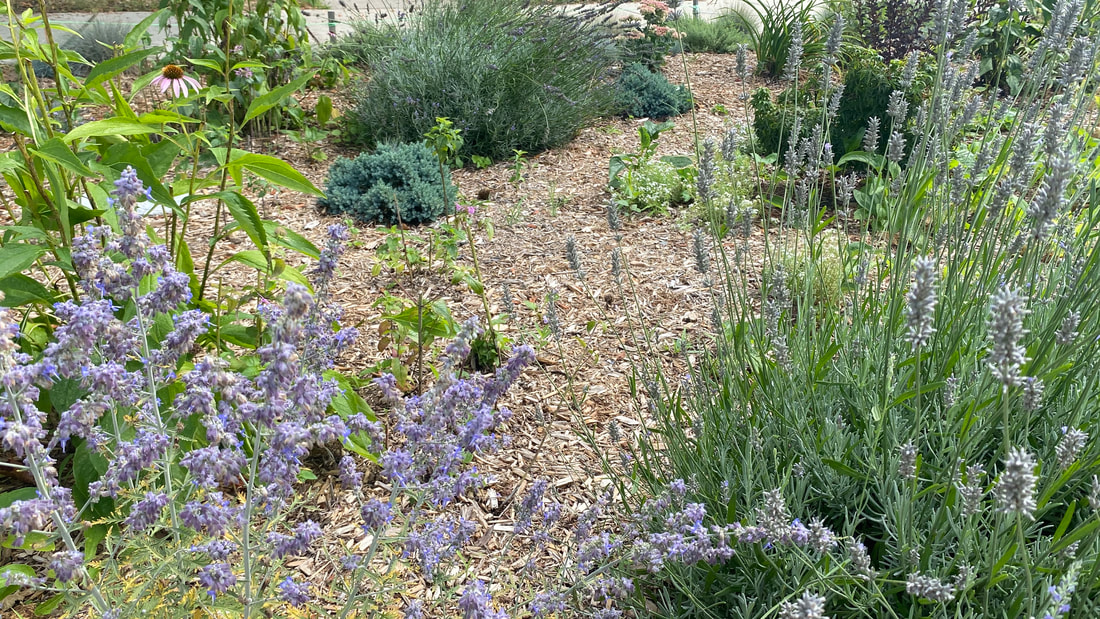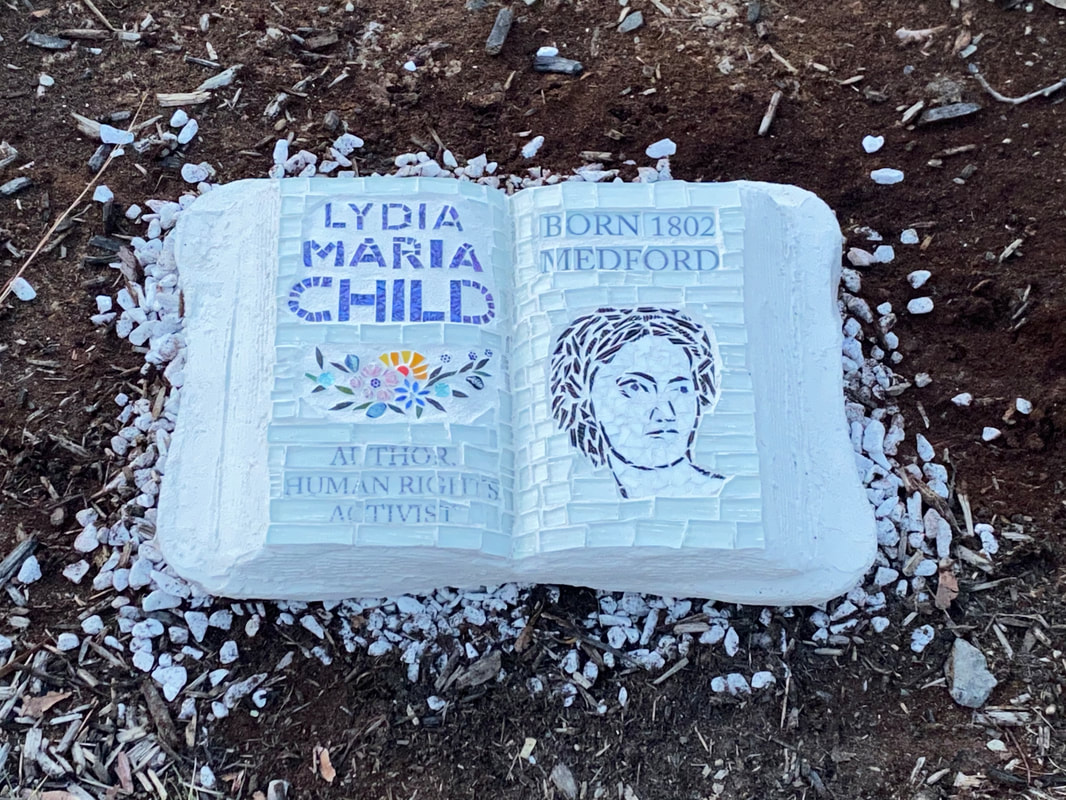 Lydia Maria Child was an abolitionist, women's rights activist, novelist, journalist, and Massachusetts resident, who--unlike most women at the time--was famous in her own right in the 1800s. Born Lydia Francis in 1802 in Medford, Massachusetts, she lived there until about age 11, and is supposed to have visited her "Grandfather's House" in the same town. You might know the holiday song "Over the River and Through the Woods" [to Grandfather's House We Go]. Well, the lyrics of that song are taken from a poem that Child wrote in 1844 called "The New-England Boy’s Song about Thanksgiving Day," and "Grandfather's House" is thought to be THIS house (although that's not been proven for absolute sure). The house overlooks the Mystic River--the same river as in the song. The woods, alas, are no more. A few years ago Medford reconfigured an intersection a few houses from Grandfather's House, in an effort to slow down traffic turning onto the street. The new corner now features a garden planted with native grasses and wildflowers. Since the garden is so close to the house of Maria Child's grandparents, it was named in her honor. She was a woman far ahead of her time: strong, confident, articulate, famous, and published under her own name. You can read more about Maria Child on the Medford Historical Society website. I wanted to create a mosaic piece for the garden to honor Lydia Maria Child. I incorporated a portrait of her as a young woman, a few identifying words, and a graphic based on her own watercolors. Yes, Child was also an accomplished artist, as were most women of her time. The flowers I used as a model appeared in Flowers for Children (1844-1846), which she both wrote and illustrated. The concrete "book" references the many many books that Child wrote during her prolific professional career. Comments are closed.
|
AuthorSusan Altman: Mosaicist, Community Artist, Writer/Editor Archives
February 2022
Categories |
Email: [email protected]


 RSS Feed
RSS Feed